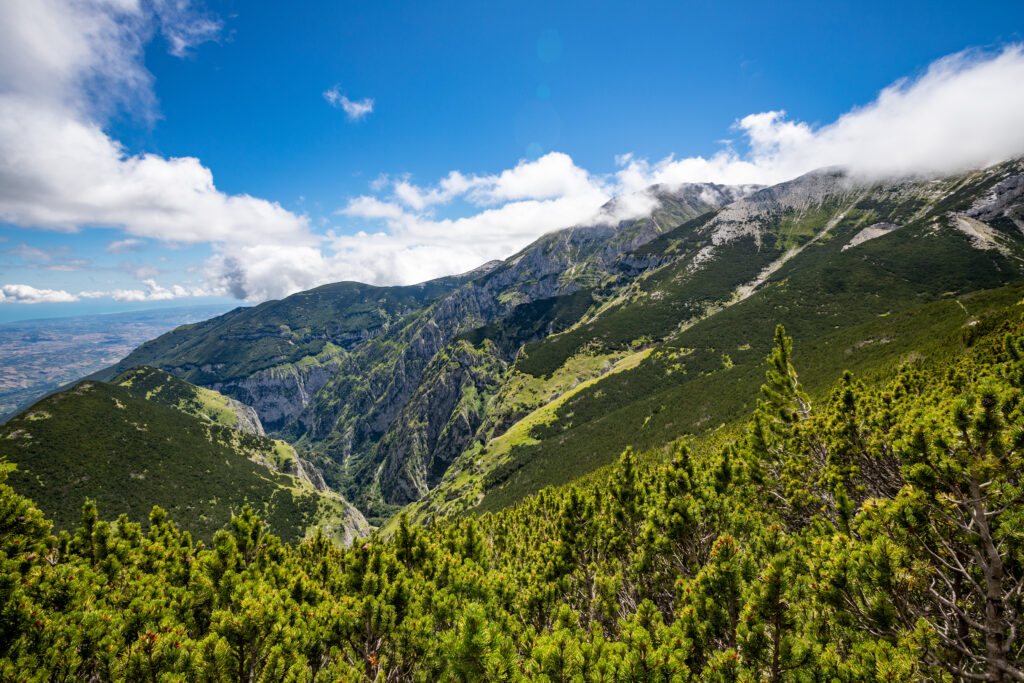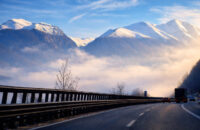Whether for sports, fun, rest or relaxation, a mountain vacation ensures all the benefits of knowing and experiencing wonderful places. Direct contact with Nature is in itself a panacea, but in any activity it should always be remembered that mountains play a fundamental role in the world ecosystem because they are an important reservoir of water, energy, minerals and biodiversity. In a world of limited environmental resources, education for sustainable and responsible tourism means respecting the local culture and economy, the social and natural environment, and, in order not to be the cause of the degradation of the mountain environment, one must know well how to behave.

Here are some small steps for a beautiful and sustainable vacation in the mountains:
RESPECT ANIMALS: All animals have a definite role in the balance of the environment in which they live, so it is a good rule not to harm them or disturb their habits. If you are accompanied by a pet keep it under control at all times. Do not touch the cubs and do not remove nests or eggs as many wild animals by smelling humans would no longer be able to recognize their cubs and would abandon them. Therefore, limit yourself to discreetly observing wild animals and never give them food.
ALWAYS FOLLOW TRAILS: marked trails are generally the easiest and least dangerous routes. Moving away from them makes it easier to get lost, hurt yourself, encounter dangers and damage meadows and undergrowth.
CHOOSE GREEN ACCOMMODATION: Whenever possible, choose a hotel, bed and breakfast or guesthouse that uses renewable energy sources and facilities built according to green building criteria and well integrated into the natural environment.
USE PUBLIC TRANSPORTATION AND BICYCLES: During your stay, prefer to travel by foot, bicycle or public transportation.
And here’s what NOT to do:
NEVER LEAVE WASTE: Waste should always be brought back, for many of them are not biodegradable and this implies a very long time for their natural destruction. Accumulation over time would then make disposal difficult by damaging the ecosystem.
DO NOT LIGHT FIRE: It is advisable not to light fires; a gust of wind or a small distraction could start a fire. About 40 percent of forest fires are caused by distractions. In many regions, lighting fires within 50 meters of forested areas is prohibited, and it is always prohibited during dry periods.
AVOID PRODUCING MIDDLE NOISE: Noise disturbs the animals’ quiet. Silence is an essential component of both well-being and communication among living things. Also, in winter, disturbing noises being air vibrations could contribute to avalanches or avalanches.
DO NOT DAMAGE TREES AND FLOWERS: Avoid tearing up plants, flowers, branches, leaves or cutting trunks. Besides being unnecessary gestures, they are harmful to nature as they hinder the natural rebuilding processes of vegetation. Picking a flower, plant or simply moving a stone could deprive an animal of its food or den.
DO NOT TRANSIT WITH MOTORIZED VE HICLES INSIDE PARKS: Vehicles should not be used to plunge into the heart of nature. Racing, off-road exhibition, motocross on meadows, forests or mountain trails compromise the turf, pollute the air, frighten animals, cause disruption on the ground and affect the environmental balance.







